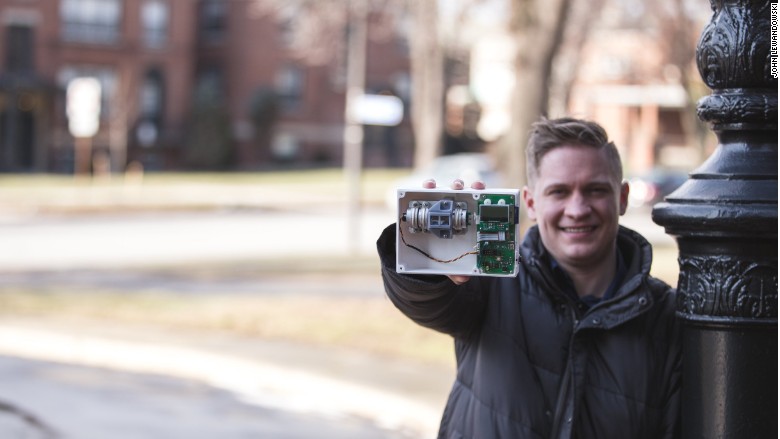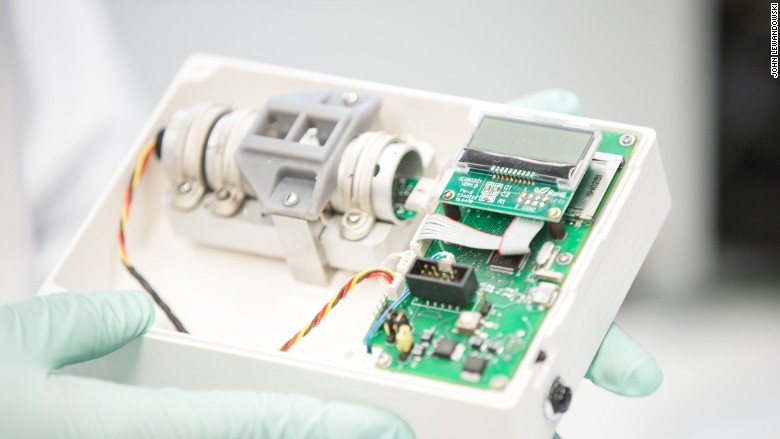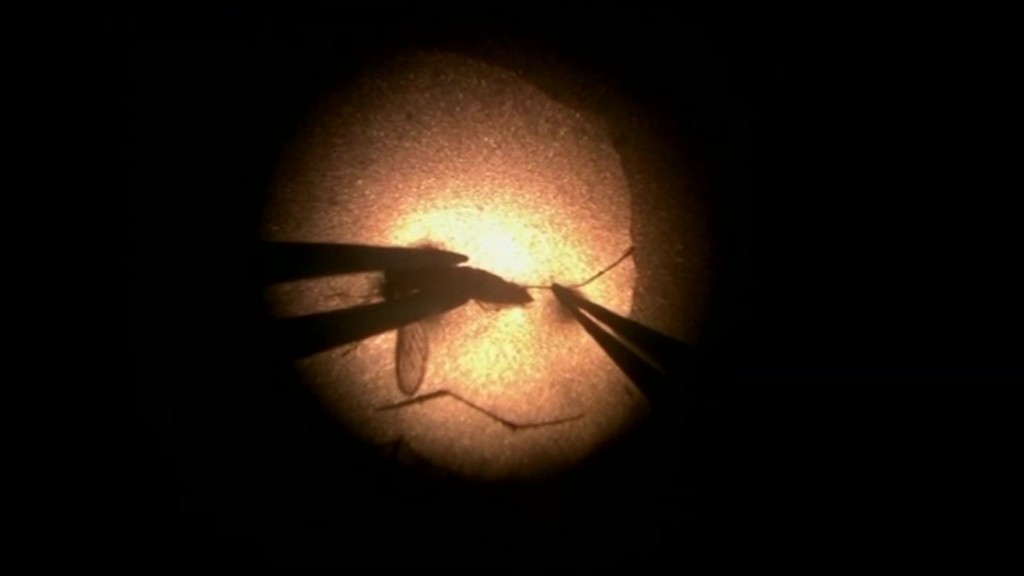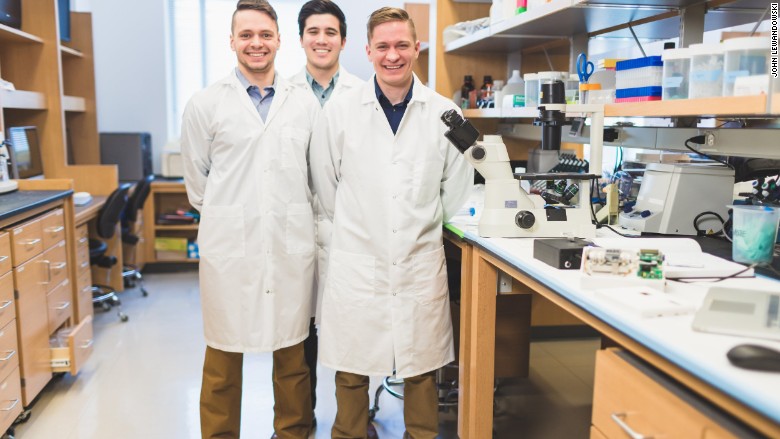
Malaria, which affects 200 million people each year, is one of the deadliest diseases in the world.
Although it is preventable and curable, the World Health Organization estimates that 438,000 people died from malaria in 2015, mostly in sub-Saharan Africa.
John Lewandowski, a PhD student in mechanical engineering at MIT, said diagnosing it quickly is critical.
"Early detection is very important, typically in the first five to seven days before symptoms arise, so that treatment can begin," said Lewandowski, 26.
He's designed a mechanical device called RAM (Rapid Assessment of Malaria) that is able to detect malaria in five seconds from a drop of blood.
Related: He created Google Alerts. Now he's an almond farmer
There are two primary ways to diagnose malaria: You can test a drop of blood under a microscope to identify the parasite, or you can do a diagnostic test on a blood drop sample, which returns a positive or negative result, similar to a home pregnancy test.
But many rural communities in Africa and Asia don't have the medical infrastructure for microscopic tests, and the diagnostic test can't detect malaria infection in the very early stages.

Lewandowski developed his device to make diagnosing malaria quicker and cheaper.
The RAM is battery-operated, costs about $100 to $120, and is made from low-cost materials. The plastic box (measuring 4x4 inches) has a small circuit board, a few magnets and a laser on the inside. On the outside is an LCD screen, an SD card slot and a plastic disposable cuvette.
"It's pretty bare bones," said Lewandowski, who's the founder and CEO of Boston-based Disease Diagnostic Group, which is developing the device.
Malaria parasites in human blood create iron crystals that are magnetic in nature.
"As an engineer, I thought about creating a way to detect these magnetic crystals quickly," said Lewandowski.

You take a finger prick of blood and insert it into the box through the cuvette. If the malaria parasite is present, the magnets draw the iron crystals horizontally, vertically or diagonally. The laser helps identify the pattern and diagnose the disease. (If the disease isn't present, no crystals form.)
The technology is deliberately simplistic and easy to use, although diagnosing the parasite and determining treatment needs to be done by a local clinic or hospital.
"The technology is novel," said David Sullivan, a professor at Johns Hopkins University and an expert on "hemozoin," or the iron crystals. Sullivan, who is familiar with the device, said it offers a slight advantage over the rapid diagnostic tests because of its speed; some malaria patients can die within 24 hours.

Rapid blood testing devices have been in the spotlight recently. Most prominently, Theranos, which claimed its blood testing device could process a full range of lab tests with just few drops of blood. The firm was valued at $9 billion, but in October 2015, a WSJ report questioned the accuracy of Theranos' blood tests and it has been under fire since then.
But Lewandowski said his device isn't reinventing the wheel.
"Our technology is just speeding up that same process and bringing down the cost," he said.
At the same time, he said the company is exploring how the technology could pivot to test for other mosquito-borne diseases like dengue fever and Zika virus.
Related: Reinventing the color black
Since 2013, Disease Diagnostic Group has tested the RAM device in clinical trials in India.
"In India, the field study of 250 patients showed a 93% to 97% accuracy," Lewandowski said, adding that a new field study will launch this summer in Nigeria with up to 5,000 patients.
The startup has won about $1.5 million from various business competitions, including the MIT $100K Pitch Competition and the Harvard Life Science Accelerator.
"We self-funded initially and the rest of our investment is from prize money and grants," said Lewandowski. He said the firm has six full-time employees and operates a lab and testing facility in Buffalo, New York.
The startup is already selling the devices in limited quantities to doctors in small clinics and individual healthcare workers doing malaria field tests in India.
The firm has submitted the device for approval to the WHO and for EU health and safety certification.
Lewandowski expects to have RAM devices more widely available for purchase in a year, and eventually in the hands of families in high-risk regions of the world for malaria.
"For us, social impact is our mission," he said. "We want them to be used in the right way by the right people who need them the most."

